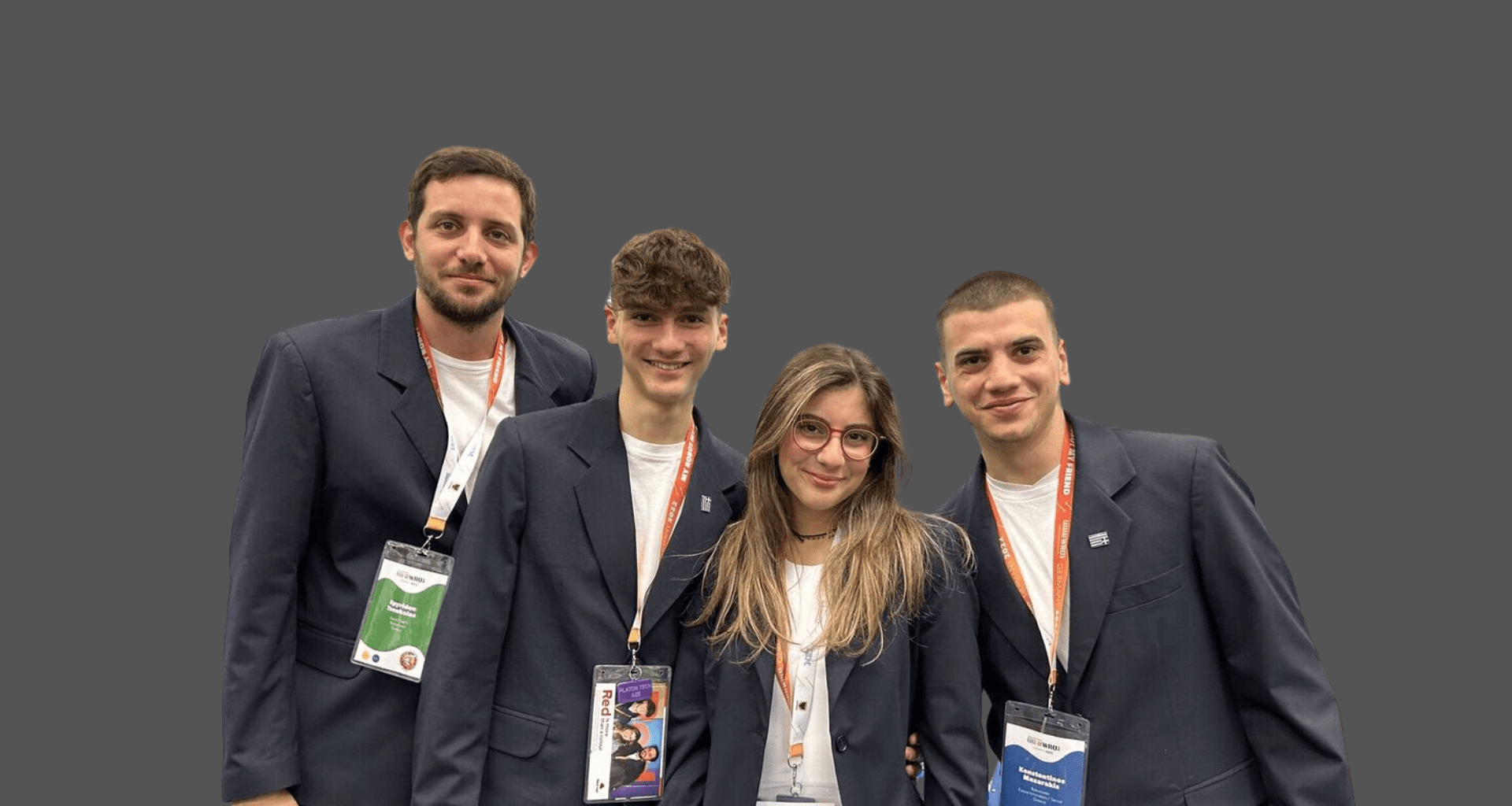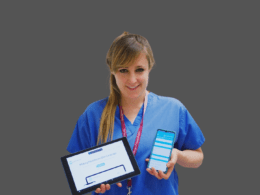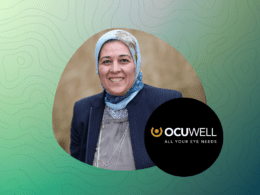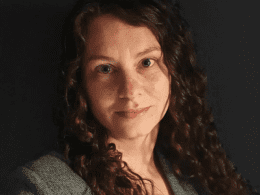In this interview, our Editor-in-Chief Kosta Mavroulakis caught up with Athens-based AI startup Pop2See, which is creating solutions for the visually impaired.
Can you introduce yourself and tell us about your role?
I’m Spyro Tsoukalas, the co-founder of Pop2See. I graduated from the National Technical University of Athens as an Electrical and Computer Engineer. Over the last few years, I’ve developed a passion for startups and nocode, having experimented a lot and having worked in various positions.
In 2021, along with Konstantinos Mazarakis and Alice Rangou, we formed a robotics team. We worked hard, tried harder and travelled around Europe to compete in various events until we decided to start Pop2See, a social impact startup that aims to create tech solutions for blind people. At the moment, I am leading the team, which has grown to nine amazing team members.
How did your company come about, and what was the motivation behind it?
Our story started as a young team in robotics dedicated to one cause: to make the school life of students with sight loss more accessible with the use of technology.
How did that purpose come about? Alice broke her glasses, and for a couple of days at school, she was incapable of seeing what the teacher was writing on the blackboard, feeling dependent on her classmates. This unsettling experience pushed us in that direction, to make the school routine of blind students easier.
We soon started working really closely with the blind community, and after a year and a half – while having gained some international awards, including second place at WRO 2022 – we decided to establish Pop2See as an impact-driven startup. What may seem like an insignificant experience triggered a series of events driven and motivated completely by our passion for solving pressing matters in a blind person’s life.
And that’s where we stand today, trying to develop valuable AI-powered solutions for blind people.
Can you describe Pop2See’s mission and values?
Pop2See’s mission and values are upheld by two fundamental pillars. Firstly, we are dedicated to investing in the potential of impact-driven technology and artificial intelligence to provide our community with solutions that are inclusive and accessible and help them become more autonomous.
Secondly, we are committed to fostering a culture of collaboration, empathy, and continuous innovation. We recognise the significance of working closely with the blind community, listening to their needs, and co-creating solutions that truly address their challenges.
Our values centre around cultivating an environment where every individual feels heard, respected, and empowered to contribute to the advancement of accessible technology. Together, we strive to create a more inclusive and equitable world.
What are some of the most pressing social issues that Pop2See is working to address through its technology?
By working closely with the blind community, you quickly grasp the daily challenges they face just to accomplish simple tasks. This ranges from accessing necessary information to moving comfortably within indoor spaces.
When you ask blind individuals about their number one challenge in their everyday lives, their answer is straightforward – people. This essentially points to the general lack of awareness in our society, including ourselves, about how to interact with a blind person appropriately. Imagine stepping into a store and being completely overlooked by an unsure employee.
Can you visualise the frustration of not being able to determine if the medicine you’re holding has expired? Or the disappointment of being unable to independently explore a museum?
Spyro Tsoukalas
As far as pressing social issues are concerned, we are focusing on improving the access they have to information of various types. For instance, navigating indoor spaces can be a struggle, or important details when dealing with medicine, such as usage instructions, side effects, and expiration dates, are often inaccessible.
Can you visualise the frustration of not being able to determine if the medicine you’re holding has expired? Or the disappointment of being unable to explore a museum independently?
To sum it up, blind individuals face inadequate customer service in retail stores, hospitals, public authorities, etc, as well as inherent difficulties when navigating indoor places or accessing various types of information.
How does your company measure the impact of its work in creating positive change?
Our impact revolves around enhancing the lives of visually impaired individuals by leveraging our technology and fostering a strong community. Following the launch of our app in September 2023, one of our most important metrics is the number of visually impaired individuals we assist and empower.
Through awareness campaigns and training initiatives, we’re actively reshaping the attitudes and outlook of sighted individuals, whether professionals or the general public.
We are utilising metrics like engagement with our awareness campaigns on social media and the extent of media coverage we receive to measure our outreach truly. For example, since 2021, we received 300+ media mentions and more than 1 million impressions. Looking ahead, we envision our impact being assessed through a multifaceted approach, combining analytics from our tech solutions, our events, and our social media campaigns.
In your opinion, what impact will technology have in creating a better future?
Technology holds immense potential to create a better future with a strong focus on inclusivity and equity. Innovations can drive positive change by breaking down barriers and ensuring that opportunities are accessible to everyone. It can play a pivotal role in the process of achieving the 17 Sustainable Development Goals that the UN members adopted in 2015, and set an agenda for by 2030. Some indicative examples are the following:
1) Advanced healthcare technologies can lead to more equitable medical access, particularly for underserved communities. One of our solutions follows this direction.
2) Automation and AI are already contributing to reducing inequalities by providing new skills and job opportunities, benefiting a broader spectrum of people.
In addition, in our era, technology enables marginalised voices to be heard and promotes cross-cultural understanding, fostering a more inclusive global society. However, it’s essential to be cautious of potential drawbacks, like reinforcing existing inequalities or privacy breaches. To create a truly better future, we must proactively design and regulate technology with a focus on inclusivity, diversity, and equitable distribution of its benefits. By doing so, technology can become a powerful tool in building a future where everyone can thrive and contribute regardless of background.
What advice do you have for other companies looking to use Tech for Good and positively impact the world?
My advice for other companies looking to use technology for good is to find a real problem to solve and not “settle” for an idea that just popped into their mind. User research is very important when it comes to social enterprises because it is by solving pressing social matters that you make the change.
You should also experiment a lot! Of course, the first prototype you make will not be your last one. As one of my favourite phrases says: “Try, fail, repeat”. Do not give up, keep trying and testing to have an accelerated journey to achieve a positive impact in the world. Pop2See has pivoted three or four times in the last 12 months. I have seen many companies fail because instead of falling in love with a problem, they fall in love with their ideas and vision and spend time building a product or service that eventually no one uses.
In the world of social projects and non-profits, user research is incredibly important. It’s through addressing urgent societal issues that tangible results can be achieved. Persistence is key. Don’t lose heart.
You can learn more about Pop2See on their website here.










